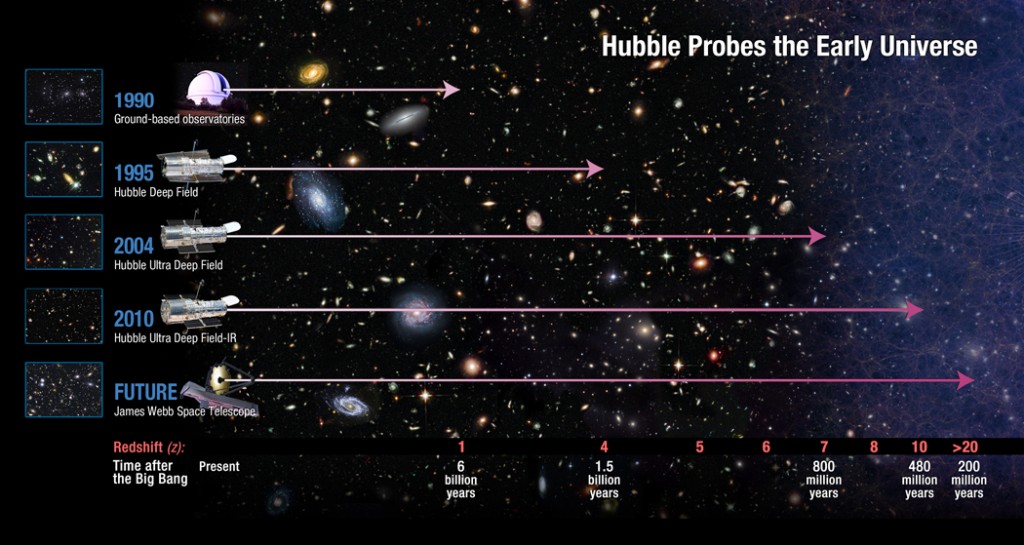What is time? Does time truly exist in the universe? Is the way that time passes here on Earth also the same everywhere else in the universe? How do physicists today look at time compared to philosophers over time? These are some of the questions I wish to look at in this blog post.
Introduction
There are two ways that most people today understand time.
First is, of course, based on the clocks that we use on Earth, which are based on the movement of the sun (or technically the rotation of the Earth as the sun is stationary) [1 — more on this below].
The second way that most people look at time is based on the sequence of events taking place (‘x’ happened before ‘y’, ‘z’ happened after ‘x’, etc).
Both definitions of time would be considered common-sense definitions today, but those are not quite the definitions I am concerned with. The time question I am concerned with is more broad. Does time exist absolutely throughout the universe? In terms of the second definition above, does absolute time exist both for event ‘a’ to event ‘z’ (and outside that as well)? Absolute time is a reference to time that would be experienced the same way by every person or being in the known universe – this would essentially be “true” time that everyone would experience.
There is a common connection here: both definitions above are relative to something else. The first definition is relative only to Earth & our sun. The second definition is relative as well, and it is simply sequence of events within a vast closed system with constraints. Is there any way of measuring absolute time? Logically the concept itself of absolute time might make sense, but is it realistically possible?
Einstein & Theory of Relativity
Einstein’s theory of relativity says no. Within his theory of relativity, there is something called time dilation. Best example to explain this is through clocks. Lets say you have two atomic clocks that are beating at exactly same rate with no differences in their designs. You decide to take one to top of a building and other to the basement. The clock closer to the center of Earth’s gravity in the basement will tick slightly slower than the one at the roof. The reason is not mechanical but simply that time moves at different paces depending on where you are. The closer you are to a large body of mass, which has stronger gravitational pull, the slower time seems to move. The farther you are, the faster time moves. [4]
Many past philosophers argued and theorized that there has to be absolute time that everyone experiences in same manner. If time was absolute, BOTH clocks would tick at exactly same rate no matter where. Unfortunately, experiments show that is not true. Many experiments have been done for this since 1920, but with same results every time that shows time dilation.
This phenomenon is also true with speed. The closer object reaches to the speed of light, the slower time seems to move. The closer you are to absolute rest, the faster time seems to move [5]. Remember, both are relative to each other. If you put an atomic clock in a moving car and you put one on the sidewalk, the time on moving car will tick at slower pace than the one on the sidewalk. The closer you get to speed of light, the greater the effect becomes.
Global Positioning System is essentially theory of relativity in practice. It works using these relativity concepts – it triangulates location by using satellites and Earth’s space-time. These satellites calculate time dilation continuously & its’ complex mathematics, which goes beyond my understanding. Without this, we would never be able to send rockets on a trajectory to other planets either, let alone be able to control the Mars rovers from Earth through Earth-bound satellites. Hubble Telescope and International Space Station must also take into account time dilation to some degree for intersecting rockets in space. Time dilation must be calculated for all this.
Ancient Greeks and even later folks like Isaac Newton clung to the concept of absolute time (Greeks also believed in absolute space). These time dilation effects essentially killed the concept of ‘absolute time’ and ‘absolute space’. Time elapsing cannot be absolute for anyone and neither can space as it curves due to gravity (and everything moves relative to something else).
Speed of Light & Theory of Relativity
The only ‘time’ that we truly know is how long it takes light to travel through space, and that is relative to the speed of light. That link, essentially, makes time (distance that light travels) and space the same, which is one reason why Einstein combined the two into space-time. The kicker here is that light travels at same speed always (and straight) [6]. Einstein showed that gravity along the way can curve space itself so light must travel along curved space (bit more complex). That makes light take longer to get from point A to point B, but light itself never slows down (Bird, 1921). This is why speed of light is considered a constant that matter with any mass can never reach.
Physicist Stephen Hawking explains this well:
As an object approaches the speed of light, its mass rises ever more quickly, so it takes more and more energy to speed it up further. It can in fact never reach the speed of light, because by then its mass would have become infinite, and by the equivalence of mass and energy, it would have taken an infinite amount of energy to get it there. For this reason, any normal object is forever confined by relativity to move at speeds slower than the speed of light. Only light, or other waves that have no intrinsic mass, can move at the speed of light. (Hawking, 1998)
When I first learned this a couple years ago, it raised one question for me: is the warp engine in Star Trek nonsense as it can travel much faster than light? A theoretical physicist would say that warp engine is definitely possible by using engine to create artificial gravity field or even making the engine warp spacetime field itself & make it “move” faster than light (it would not violate theory of relativity as only the field is traveling at speed of light and not the object itself – object is being carried inside the field). Of course, there are remaining issues such as: what would power it? This will be saved for another blog entry.
Speed of Light & Time
What does speed of light have to do with time? Time is essentially how far light travels from point A to point B. Time is closely linked with speed of light – once you reach speed of light, time would essentially stop. Time only moves while an object with mass is moving at speed less than of light.
The time taken is the distance the light has traveled—which the observers do not agree on—divided by the light’s speed—which they do agree on. In other words, the theory of relativity put an end to the idea of absolute time! It appeared that each observer must have his own measure of time, as recorded by a clock carried with him, and that identical clocks carried by different observers would not necessarily agree. (Hawking, 1998)
Lets say you have a fraction x over y. If x (time) is always relative and if y (speed of light) is always the same, then absolute time cannot exist mathematically. I believe that in order for time to be absolute, x (time) would have to be the same for every observer and y (speed of light) would have to be relative, but theory of relativity shows that speed of light itself is ALWAYS the same. The other scenario is for both x and y to be absolute, but the curving of space-time due to gravity forbids that from ever happening.
Remember, any scientific theory is a partial theory as no theory is 100% complete due to concepts and knowledge continuously being updated with new ideas, facts & experimentation. Theory of Relativity would be of little use if a way was found to transfer data instantaneously over any distance (Bird, 1921). New work is being done in that area using something called quantum entanglement with perhaps the most revolutionary scientific theory ever – quantum physics. Quantum entanglement could revolutionize everything in the future.
Conclusion
We established how time is not same for everyone due to time dilation, curvature of space-time continuum & speed of light being a constant. I considered the scientific aspects of time, but there is an ancient philosophical aspect I have yet to consider. That question is: Is this mysterious fundamental thing we call ‘time’ eternal infinitely in both directions? This is one thing I have considered many times & had sleepless nights trying to wrap my mind around to no success.
I cannot fathom the universe before the big bang. It is inconceivable to try to grasp what existed before the big bang, just like I cannot conceive what existed before I was born. I can hear of stories & memories of others but I have no recollection as I did not exist. My time, my memories & my conception of existence began the day I was born. That is how I personally understand time and why I would argue that time began for our universe the moment of the big bang. Before the big bang, time has no relevance to our universe.
That line of question is the same as asking what led up to the big bang.
Aristotle, whom I admire greatly, has an argument for this. He argues that nature has chain reactions that go further and further back. If every event in nature goes back & back, there must be a first action that caused this chain reaction. This first action must be god, he argues. This leads to another issue that turns this answer into another question: how did god as ‘first cause’ come into existence? If this chain-reaction must require first action, then what caused that first action? Was there something before first cause? Now the chain reaction continues and we return back to the same philosophical question all over again.
What things led up to big bang is difficult to grasp. It could have been caused by collision from another universe (if multiverse concept is correct). It could very well be “God”. Maybe we live in a world like the Matrix. Maybe our universe is all imagination. You can believe in any cause, whether we have any way of knowing or not knowing. However you cut it and whether you look at it through scientific or philosophical or spiritual lens, we come back to the same question: is time eternal and what was time before this phenomenon we call the big bang?
The best answer I have is that it is not relevant as we can never find out – everything we know and can grasp is after the big bang. If anyone can answer that with a powerful argument that does not loop back to same question, humanity has been searching for you for 2-3 million years (since the first humans) along with every living thing in our universe. Step forward and change our world & our universe (logically, I cannot fathom such an argument, but we do not know what we do not know until we know it!).
The Search Continues Farther & Farther into Time
Notes & sources:
[1] Of course, the sun is not stationary either as it moves very slightly around our solar system’s center of mass, which is outside the center of the sun. It creates a wobbling effect that can be measured. Center of mass is essentially the region where the masses of the entire system balance out (planets in the case of the solar system) – it simply refers to where mass is distributed in a system. Therefore, the planets and everything in the solar system revolves not around the sun but the center of mass, which is called the ‘barycenter’ (usually located inside the sun and sometimes even outside the sun!). For more: http://spaceplace.nasa.gov/barycenter/en/
[2] Bird, J., & Einstein, A. (1921). Einstein’s theories of relativity and gravitation: A selection of material from the essays submitted in the competition for the Eugene Higgins prize of $5,000. New York: Scientific American Pub.
[3] Hawking, S. (1998). Space and Time. In A brief history of time (10th ed.). Toronto: Bantam Books.
[4] http://science.howstuffworks.com/science-vs-myth/everyday-myths/time-dilation1.htm
[5] There is technically no “absolute rest” because nothing is EVER stationary. Every body of mass has gravity and everything with gravity is in constant motion at ALL times relative to something. Even on Earth, being still is only relative to Earth itself. The Earth is in constant motion around the Sun. The Sun is in constant motion around the center of Milky way. The Milky Way is in constant motion around other galaxies. Other galaxies are in constant motion around the ‘local group’ of galaxies. The local group is in constant motion around our ‘supercluster’ of local groups. Our Virgo supercluster is in constant motion around other superclusters. Every supercluster is in constant motion around our universe. If there are other universes out there, our universe is in constant motion around other universes. For more: http://www.atlasoftheuniverse.com/universe.html
[6] Before Einstein came along with an answer, physicists in late 1800’s tried to figure out why light travels at constant speed of 186,000 miles per second and whether that speed is relative to something else. They thought it might be due to a substance called the ‘ether’ that we measure speed of light relative to traveling at. Quick explanation. The concept of ether is that ether is everywhere & always at rest no matter where. Physicists at the time felt that just like sound waves must travel through water or air, light too must be traveling through this ‘ether’. So they proposed that everything, including the empty space in the universe, contains ether that light waves travel through. The speeds we measure must be relative to this ether. Would different observers see light travel at different speeds? They devised an experiment called Michelson-Morley to test all this. No matter what they did, the speed of light was always the same at each and every angle. (Hawking, 1999). No ether was ever found and the experiments all failed. After Einstein’s theory of relativity came along, ether was no longer necessary to explain time or space (Bird, 1921).
- My Favorite Books - February 7, 2024
- Review of Carl Sagan’s The Demon-Haunted World - January 31, 2024
- The 75 Greatest Films of All Time - December 22, 2023






